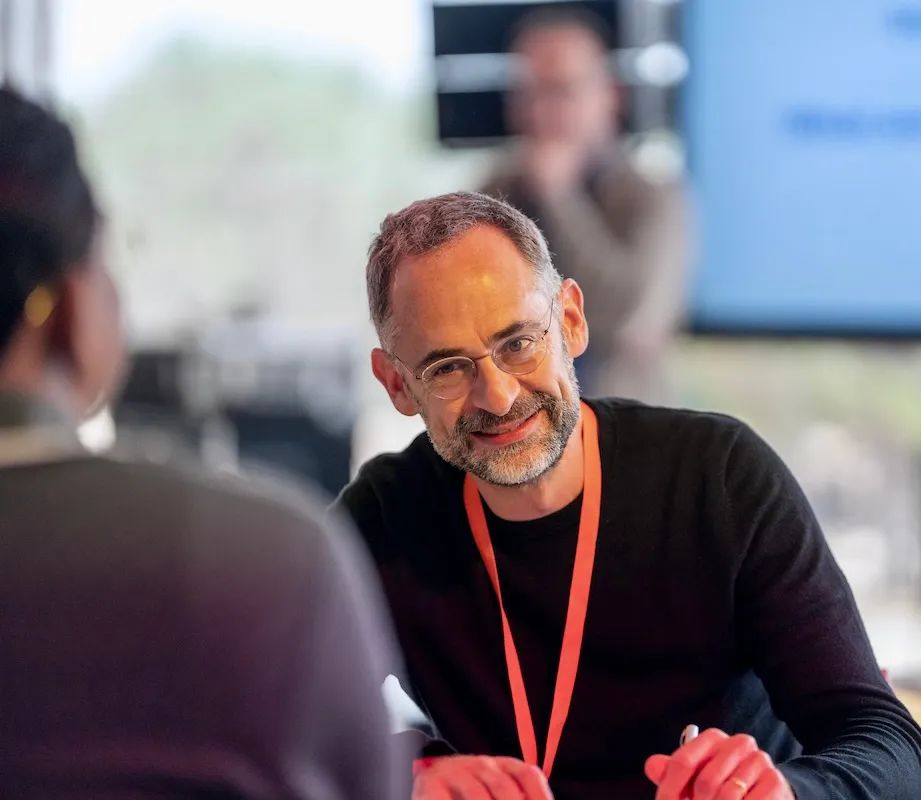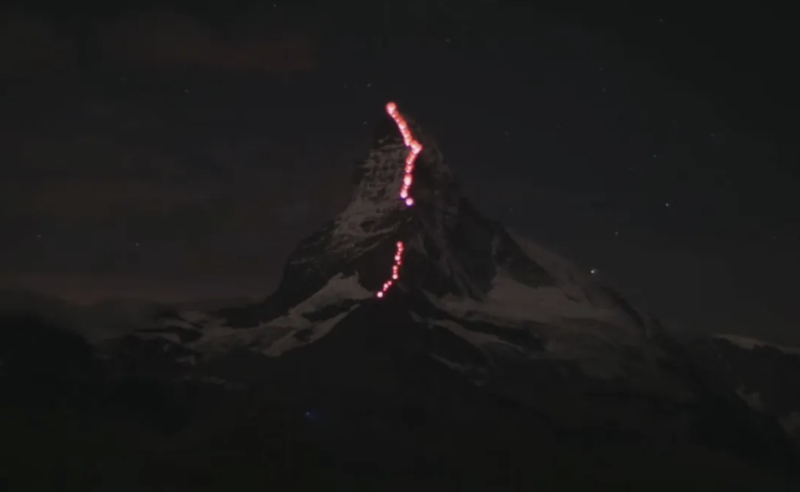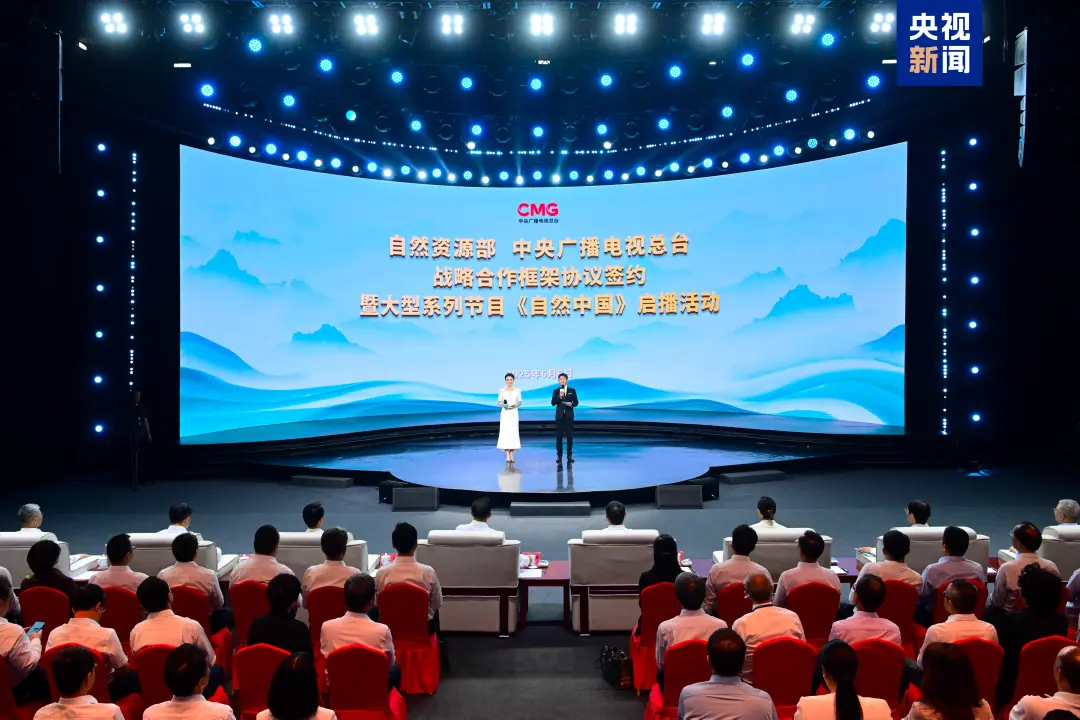
In March of this year, a cutting-edge paper by the team of Ranga Dias from the University of Rochester in the United States, the research on room temperature superconductivity, was published in the journal Nature, and the back foot aroused doubts.
This is not unrelated to the "black history" of the Dias team. A study published by the team in Nature in October 2020 claimed to have created a room-temperature superconducting material at 15°C, and the paper was subsequently retracted in 2022. The editors of Nature believe that there were irregularities in its data processing.
As an "old store" of academic publishing with a history of more than 150 years, why does "Nature" choose to continue publishing papers by controversial authors? For authors with retracted papers, what are the principles for Nature and its subsidiary journals to continue publishing their papers? Recently, "China Science Daily" interviewed Chris Graf, Director of Research Integrity of Springer Nature Group, the publisher of "Nature".

Photo courtesy of Chris Graf interviewee
"We evaluate not the authors, but the research itself"
"China Science Daily": For a controversial author like Dias who had data violations and had his manuscript retracted, why did Nature choose to continue publishing his paper?
Graf: One of the most important principles of Springer Nature is that we judge each study on its own merit, and the author's previous history should not affect the evaluation of a new study. In short, we evaluate not the authors but their research work. This means we don't really focus on who the authors are or where they work, which helps to be as inclusive as possible.
"China Science Daily": Will "Nature" and its subsidiary journals have a "blacklist" for withdrawn authors?
Graf: In some cases, we no longer publish research related to some identities, such as the case of paper mills. When we find an identity that is associated with a paper mill that is trying to systematically manipulate the publishing process, we definitely put that on a list and make sure it doesn't become an author, a peer reviewer, or any role related to publishing.
"China Science Daily": In March this year, "China Science Daily" made a statistics, and "Nature" magazine retracted 86 papers in 150 years. How do you feel about this number?
Graf: Regardless of the 86 figure, from the perspective of the entire academic publishing industry, as scientific activity increases, retractions will also increase. My personal view is that retractions are a good thing because journals or individuals realize that published results are not reliable.
First of all, scientific research always has some risks, and experimental results often have uncertainties. So even if science is perfect, there are uncertainties. But science is often not perfect, but a messy game. In extreme cases, resolving messy parts of a manuscript by retracting it is a cause for celebration.
Second, cutting-edge research is usually at the very frontier of our understanding. A result that may seem correct today will be realized tomorrow as not quite right. We have to accept this uncertainty, then have a scientific dialogue, and build on that, it's a working process. Be more cautious about cutting-edge research, and I believe editors of high-impact journals share a similar view.
"China Science Daily": How do you understand the role of journals or publishing institutions in scientific research integrity?
Graf: It is not the responsibility of journals or publishers to investigate misconduct. Our primary responsibility is to publish the scientific record, and we want to ensure that this content is as reliable as possible. Although we sometimes issue retractions involving misconduct, these are not punishments, not sanctions, but amendments to the published scientific record.
Universities and other institutions should be held accountable for the actions of those they employ and investigate why misconduct occurred. Of course, journals will always work with authors and their institutions, for example to investigate whether data can be corrected, and to make the best possible corrections to the record. If problematic data cannot be corrected at all, the manuscript will be retracted.
Journals are the "gatekeepers" or "guardians" of scientific research integrity. We do our best to ensure that the published content is reliable. We achieve this goal through professional editors and peer reviewers, rigorous processes, and investment in technology. It's a very good process, even though it's not perfect, just like science isn't perfect or real life isn't perfect. Our quality checks don't end when the publication is complete, and if readers or authors find something wrong, we will correct it in the best way possible.
"We don't have green lanes"
"China Science Daily": When faced with some popular papers, will "Nature" open up a green channel to speed up and even simplify the process?
Graf: No, we don't have a green channel.
"China Science Daily": Then, why the review time is so different?
Graf: This falls under the category of human behavior. If a paper is received that is truly important and interesting, the peer reviewers will prioritize expedited review. Research that needs as much attention as it did at the start of the pandemic. Of course, journal editors will always ask peer reviewers to expedite their review, but whether they have an incentive to do so is another question, and we only publish after peer review.
One of the benefits of peer review is that it involves the scientific community and publishes the research work of peers, which is a self-governing and regulating system, which is good but not perfect. We do need to find some way to speed up the peer review process, maybe technology can assist peer reviewers or editors, but it is ultimately up to people to make the decision.
"China Science Daily": Regarding peer review, one case is a study on the smallest dinosaur fossil that appeared on the cover of "Nature" in March 2020. There is a view that the peer reviewer initially disputed the study, but "Nature" still published the study, but the study was subsequently retracted because the results were not established. A paper usually has three peer reviewers. If one of the reviewers rejects a paper, will this not affect the acceptance of the study by Nature and its subsidiary journals?
Graf: It's not as simple as two good plus one bad (peer review comments) equals acceptance. The job of a peer reviewer is to comment on the paper, the scientific thinking and methods used, and how the methods produced data, reached conclusions, and so on. What editors do is look at comments and make their own decisions based on comments or suggestions. Peer review comments are important references, they help to improve the paper and influence the editorial decision, but they are not the final decision. Our editors have expertise in their field and make decisions about acceptance.
"China Science Daily": Taking the above-mentioned small dinosaur research and room temperature superconductivity research as examples, some readers questioned whether "Nature" published these controversial papers to "attract the attention of the scientific community". What do you think of these comments?
Graf: This conspiracy theory is ridiculous. As I said earlier, science is chaotic, and cutting-edge science is risky and uncertain. Sometimes it is just right to correct science by retracting manuscripts. This is a normal working process. Nobody wants to retract a paper, but if it's the right thing to do, it has to be done. All of our journals take this issue very seriously.
"Retraction is not always a bad thing"
"Chinese Journal of Science": Please introduce your scientific research background? When did you start focusing on research integrity management?
Graf: My background is in biochemistry and I have worked in university laboratories. Twenty years ago, I was responsible for publishing a journal of clinical research, some of which was funded by pharmaceutical companies. At that time, I began to realize that there should be some more general norms to guide publishing ethics. In 2004 we published the most comprehensive guide to publication ethics at the time, and I also started volunteering at the International Committee on Publication Ethics (COPE), of which I was later elected co-chair.
So, my interest started with what I was publishing, and then I saw that I could make a useful contribution to academia, which turned into a hobby at work and eventually my day job.
"China Science Daily": Can you give a case of scientific research integrity that is more impressive in your impression?
Graf: This story is about Pamela Ronald, a plant pathologist at UC Davis. Ronell had published research (on the receptor of the XA21 protein in rice) in a high-level journal (editor's note: "Science"), but later found that the research could not be replicated, so he voluntarily retracted the manuscript. Not only that, she also held a meeting to point out to agricultural scientists all over the world that the results of this study cannot be used. She retracted the manuscript bravely, and took steps to solve the resulting problems. So, retraction is not always a bad thing.
There are some important misconceptions about retractions. One of them is the assumption that a retraction is only due to misconduct. In fact, the more that retractions are sometimes inadvertently done by the authors or institutions, the more likely science is to correct itself the more such retractions are disseminated. If academic misconduct is considered too much, researchers may be afraid to correct scientific research records, which is also a hindrance to good science.
"China Science Daily": According to "Retraction Observation", a total of 119 scientific journals retracted manuscripts in 2002, and by 2022 the number would increase to more than 4,600, an increase of nearly 40 times, and the total number of retractions recorded reached 37,000 . How do you see this growing trend?
Graf: When we're talking about retractions, looking only at retraction data is always incomplete and unreliable. Another trend is that we have more research being published, and if one compares retractions to the baseline growth in research output, there is no need to worry about this number. Also, retracting a small number of questionable studies is the right thing to do.
"China Science Daily": Do you think academic misconduct can be eradicated? How should academic circles prevent academic misconduct?
Graf: We live in the real world. Everything in the real world is imperfect and complicated. There are always problems of one kind or another in all walks of life. But the vast majority of researchers are genuinely honest, and misconduct is a small percentage of the whole.
The scientific community should be held to a higher standard than other professions. To ensure this, the environment is very important. If you have a healthy team behind you and a good culture, it's very hard for misconduct to happen. Of course, a large part of the research environment is created by the incentives established by funding agencies and employer organizations alike. Sometimes incentives are misplaced and can have unintended consequences. Authorities around the world are thinking carefully about how to set the most appropriate incentives and rewards for scientific research to create a favorable environment.
"China Science Daily": How does Springer Nature achieve this goal?
Graf: Publishing institutions are also part of the academic system, and we can also help researchers create a good research environment. For example, we provide free online training to educate researchers on good research practices and prevent retractions in the first place.
(Original title "Great difference in review time, Nature has a green channel for publishing papers? Exclusive dialogue with the publisher" This article is organized according to the content of the interview and has been abridged. Chris Graf: Springer Nature Research Integrity Director, has served as the International Publishing Ethics Committee (COPE ) Co-chairman, member of the World Research Integrity Conference Committee, member of the British Research Integrity Committee, etc.)


